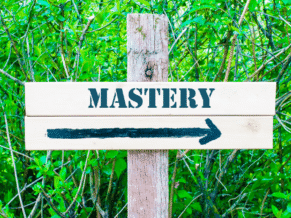Post by Mark Siegel | Asst Head of School, Delphian School
The headlines from The 74’s September 16, 2022 newsletter are more than sobering:
- “Learning loss generally is worse in districts that kept classes remote longer, with the effects most pronounced in high-poverty districts, researchers say. Yet reading scores are below 2019 levels for certain grades even in some states that quickly returned to in-person instruction, such as Florida.”
- “While some students have begun to make up ground, researchers say that, on average, it could take five years or more for today’s fourth-graders to read proficiently unless the pace accelerates.”
- “These students are at a pivotal stage. Educators pay particular attention to 9-year-olds’ literacy rates because research shows that reading ability by the end of third grade can be predictive of educational success, career earnings and the risk of incarceration.”
- Related: New Testing Data: Fewer Students in Early Grades Developing Basic Phonics Skills
Traditional approaches can not effectively address this problem. It is impossible for teachers to teach to the varied ability levels they are facing in their classrooms unless they transform their classrooms. The traditional time-based framework of education cannot address this crisis.
One growing trend in education that will help our students with the aftereffect of COVID is Mastery Learning. Mastery Learning has been around for a long time, and I think its time has come. I believe that eventually, all schools will transition to mastery/proficiency/competency-based programs that are student-centered and student-driven. It is inevitable, as was noted by Charles Schwahn and Bea McGarvey in their 2012 book Inevitable: Mass Customized Learning: Learning in the Age of Empowerment. It was true when Lindsay Unified School District in California transformed into their Performance Based System which is described as an "innovative, learner-centered approach to learning. In a performance-based system learners work at their performance level and advance through the curriculum when they have demonstrated proficiency of the required knowledge or skills."
Michael Horn's new book From Reopen to Reinvent: (Re)Creating School for Every Child brings the issue into focus. The book flap says it all "As COVID shattered the routines and lives of students, parents, and educators, it also revealed how outdated schools are and the price of remaining rooted in structures and processes designed for a different age." Across the county, many schools, districts and whole states are transitioning to schools that value mastery and understanding over seat-time. The good news is that groups like the Modern Classrooms Project and KnowledgeWorks are helping schools transition/
The transition of the literature from "we should" to "here's how" is quite exciting. We are all looking forward to the October release of Jon Bergmann's The Mastery Learning Handbook: A Competency-Based Approach to Student Achievementook. I had the privilege of being one of the advance readers and I see this as the missing link which will help teachers learn the in’s and outs of how to actually impelment a mastery/competency-based curriculum one lesson at a time. It is working in classrooms around the world.
Michael Horn goes on to describe ways to get there from here:
"Applying illuminating and productive frameworks—including threat rigidity, “Begin with the End,” tools of cooperation, and discovery-driven planning—to the schooling and education context, the book offers prescriptive and holistic approaches to the purpose of education and the effective use of technology. It is a comprehensive design playbook and process written specifically for schooling communities seeking modern solutions to perennial problems.
"Readers will discover a set of processes and ideals for schools seeking to implement new strategies for dealing with modern challenges and a way to reframe threats as opportunities to encourage the development of new solutions.
"From Reopen to Reinvent provides a practical toolbox for K-12 educators, parents, and school board members to disrupt the educational process and introduce new ways of dealing with old problems. It also belongs in the libraries of professionals working in education-related nonprofits and state education agencies interested in modernizing the increasingly antiquated education system."
Change is not hard but it takes work. Change is hard to think about. We change all the time. COVID had us changing in minutes because we had to, and we changed major operations quickly and efficiently. We can change our schools quickly when we want to. There are successful models of schools that have successfully transitioned to more student-centered models. We know we need to change our schools, and we have workable tools and working examples. Let's do it!
Learn More!
If you are interested in learning more about Mastery Learning, I encourage you to attend the Mastery Learning Summit on October 21, 2022 at Houston Christian High School. I will be presenting at this EdTechTeacher event along with other experts in the mastery learning movement, offering strands specific for STEM teachers, humanities teachers, elementary teachers, administrators & coaches. Join us on October 21st at Houston Christian High School for this amazing opportunity! Learn more and register here! https://edtechteacher.org/ett_events/mastery2022/


